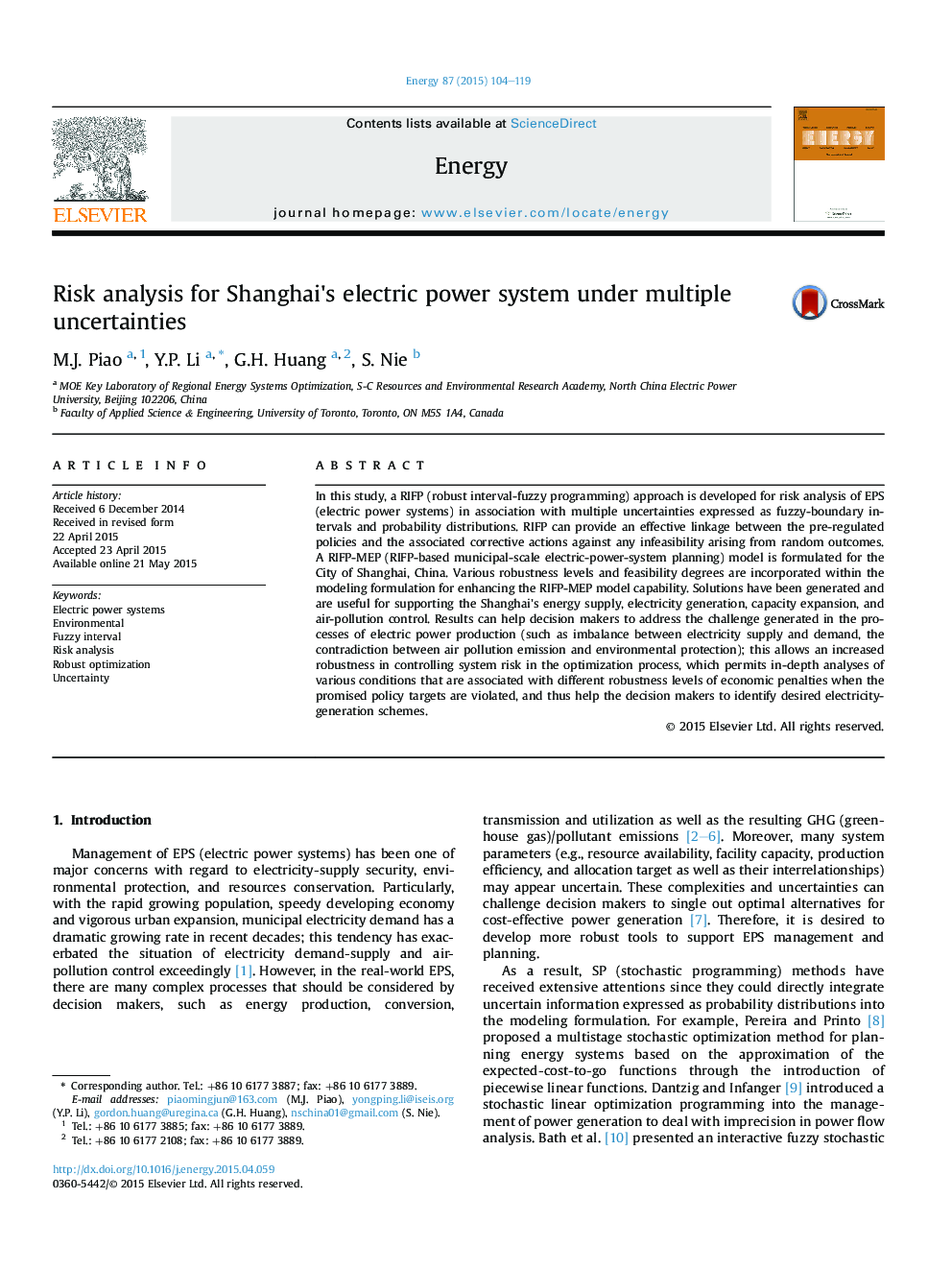| Article ID | Journal | Published Year | Pages | File Type |
|---|---|---|---|---|
| 1731820 | Energy | 2015 | 16 Pages |
•RIFP (robust interval-fuzzy programming) method is developed for risk analysis of EPS.•RIFP can reflect risk of violating system constraints under multiple uncertainties.•Robustness levels and feasibility degrees are incorporated into modeling formulation.•Scenarios associated with different risk levels and system costs are analyzed.•Results generate desired electricity-generation schemes for the City of Shanghai.
In this study, a RIFP (robust interval-fuzzy programming) approach is developed for risk analysis of EPS (electric power systems) in association with multiple uncertainties expressed as fuzzy-boundary intervals and probability distributions. RIFP can provide an effective linkage between the pre-regulated policies and the associated corrective actions against any infeasibility arising from random outcomes. A RIFP-MEP (RIFP-based municipal-scale electric-power-system planning) model is formulated for the City of Shanghai, China. Various robustness levels and feasibility degrees are incorporated within the modeling formulation for enhancing the RIFP-MEP model capability. Solutions have been generated and are useful for supporting the Shanghai's energy supply, electricity generation, capacity expansion, and air-pollution control. Results can help decision makers to address the challenge generated in the processes of electric power production (such as imbalance between electricity supply and demand, the contradiction between air pollution emission and environmental protection); this allows an increased robustness in controlling system risk in the optimization process, which permits in-depth analyses of various conditions that are associated with different robustness levels of economic penalties when the promised policy targets are violated, and thus help the decision makers to identify desired electricity-generation schemes.
